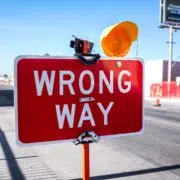Thinking of Timing the Market?
Thinking of Timing the Market?
Volatility is back and so is the idea of timing the market. The sustained rally that produced 30%+ gains in the S&P 500 in 2019 and continued into 2020 came to an abrupt halt in late February, when fears of the new coronavirus epidemic and its effects on the economy swept Wall Street and beyond. Markets across the globe plummeted, and the Dow Jones Industrial Average dropped over 1,000 points in one day. More drops followed, and volatility has ensued as investors try to grapple with the spreading epidemic and its potential impact on trade, travel, and the global economy.
The Futility of Market Timing
The situation presents a tempting scenario for timing the market — those who try to predict when stock prices will rise and fall. Should you sell before it gets worse? Should you buy while prices are down? What about parking your money in bonds until the epidemic runs its course?
While timing your purchases and sales to capitalize on the market’s ups and downs may seem to make sense in theory, it’s extremely difficult to pull off successfully. Typically, you can’t accurately pinpoint a market high or low point until after it has occurred. If you move your money out of stocks during a low period, you might not move your money back in time. By the time you realize stocks are on an upswing, it may be too late to take advantage of gains.
In fact, history has shown that trying to time the market’s ups and down is a loser’s game. Even the experts, with their analytical prowess and sophisticated computer models, cannot manage to consistently beat the market. A landmark study by CXO Advisory Group tracked more than 4,500 forecasts by 28 self-described market timers between 2000 and 2012. Only 10 were able to accurately forecast equity returns (as measured by the S&P 500) over 50% of the time, and none were able to predict accurately enough to outperform the market.1 Nobel Laureate William Sharpe calculated a market timer would have to be correct 74% of the time — on both the market decline and recovery — to outperform another investor who just lets their money sit in a passive portfolio of comparable risk.1
Dealing with crises such as the coronavirus epidemic requires patience and a level head. Here are some suggestions to help you weather the storm:
Don’t panic. Selling into a plunging market is often a sure way to lock in a loss. Talk with a financial advisor before you act. He or she can help you separate emotionally driven decisions from those based on your goals, time horizon, and risk tolerance. Researchers in the field of behavioral finance have found that emotions often lead investors to read too much into recent events even though those events may not reflect long-term realities. With the aid of a financial professional, you can sort through these distinctions, and you’ll likely find that if your investment strategy made sense before the crisis, it will still make sense afterward.
Consider Time in Market Instead. Clearly, time can be a better ally than timing. Instead of trying to time the market, you may be better off with a well-coordinated investment strategy based on your personal risk tolerance and time frame. While past performance is no guarantee of future results, the stock market has always recovered from every downturn.
So think twice before trying to time the market’s dips and corrections, and work with your financial advisor to ensure that the investments you select are in keeping with your goals.
Source/Disclaimer:
1Source: Index Fund Advisors, Inc. (IFA.com), 2014. Based on a study by CXO Advisory, © CXO Advisory Group LLC.












Leave a Reply
Want to join the discussion?Feel free to contribute!